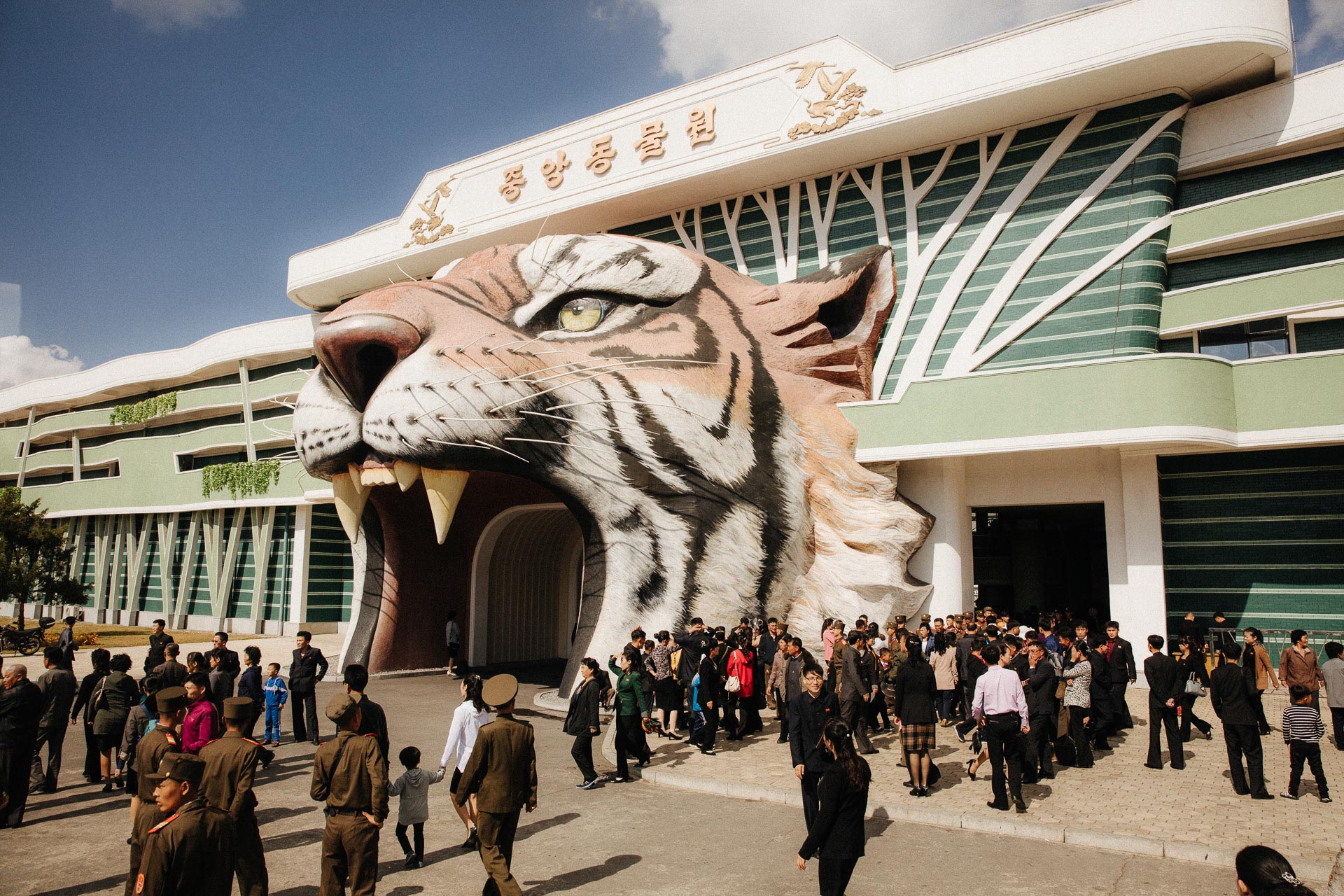Saying North Korea can be for many synonymous with secrecy, military, prohibitions and nuclear weapons. But have you ever stopped to think about what North Korea is like and how North Koreans live?

The People’s Democracy of the Republic of Korea, or DPRK for its acronym in English (Democratic People’s Republic of Korea) is a country located in the north of the Pacific Ocean, between China and South Korea, also bordering Russia. It is inhabited by approximately 24 million people, governed by a Socialist Republic regime with a single party.
Its secrecy and strict government make it something totally unknown to many, forbidden to the rest of the world, where only 1,500 Western tourists travel a year. Although the Korean government tightly controls all tourism entering the country and it is necessary to apply for a visa before entering, these visas are rarely denied (unless you are a journalist or American).
There are several travel agencies specialized in organizing trips to North Korea, such as Korea Consult, Koryo Tours or Regent Holidays, although you can also request to participate in the exclusive excursions organized by the North Korean Government itself
All tours start in Beijing, as far as you have to go on your own. There you will receive training for your stay in the country, which you will access by plane, on one of the few weekly routes operated by the Korean national airline, Koryo Airlines. Once inside, get ready to live an unforgettable experience of the exotic and the forbidden, to interact with a people unknown to the world and unknown to the world.
Depending on the duration of your trip, you will visit cities or places such as Nampo, Kuwol Mountains, Kaesong, Panmunjom, Myohyangsan, Wonsan, Sijung Lake or Kumgangsan, with Pyongyang, the country’s capital, being the main attraction of the tour.
Pyongyang, the true forbidden city
Pyongyang, located on the Taedong River, is the capital of North Korea, and is home to 2.3 million people. With frigid winters and wet summers, the city was virtually redesigned after the Korean War in 1953.
Pyongyang is a city of contrasts between the poverty of an isolated country and the monolithic buildings, a symbol of strength, that populate the city: palaces, the triumphal arch or the huge Juche tower. Although the most characteristic, and perhaps representative of the country, is the Ryugyong Hotel, one of the tallest buildings in the world (330 meters) whose construction was stopped for 16 years due to economic incapacity and lack of raw materials to finish the project., which should be ready by 2012.
The Mass Games, show of force and spectacle
One of North Korea’s main tourist interests are the Mass Games, spectacular, perfectly coordinated gymnastic displays among tens of thousands of athletes. They are generally held in summer and during that period, the Government even allows entry to citizens of the United States. A visual event that will not leave you indifferent.
An unforgettable experience… accepting their rules
Visiting North Korea is completely safe, perhaps safer than any other country, although you will have to accept its rules first. You don’t just have to apply for an entry visa; Once in the country you must remain accompanied at all times by the guides assigned to you. These guides speak English and even Spanish if you request it, and will accompany you throughout your stay in the country.
Tourists are not allowed to wander the streets of North Korea alone, so for any hotel break you will need to ask your guide for permission. Video cameras are prohibited, as are mobile phones (they will be confiscated upon entry and returned upon leaving the country). You can take your laptop and camera with you, although to take pictures you must always ask permission from your guide, who will not let you do it in poor or military landscapes.
It is also not highly advisable to speak ill of the Government while you are there, although if something happens the main person responsible will be your guide and not you. Nor will you be able to write too much about what you experienced, because the country continues to ban the entry of journalists. If what you want is to tell the experience on your blog or personal page, you will have to ask for permission beforehand.

